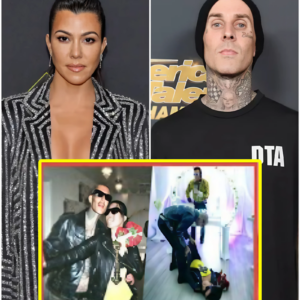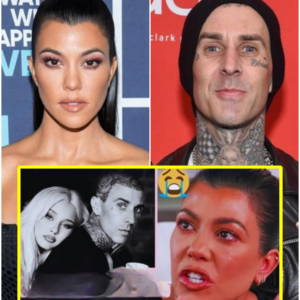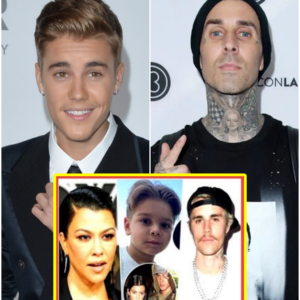The Unseen Battle: Taraji P. Henson vs. Industry Powerhouses
The entertainment industry is a realm where talent meets opportunity, but for many Black actresses, it is also where discrimination and underpayment thrive. Recently, Taraji P. Henson, a celebrated actress, has found herself at the center of controversy, raising questions about the industry’s treatment of Black women. This article delves into Taraji’s recent struggles, her allegations against Oprah Winfrey, and the broader issue of inequality in Hollywood.
Taraji P. Henson’s Struggles and Outcry
Taraji P. Henson, known for her stellar performances in films like Proud Mary and TV series such as Empire, recently opened up about her frustration with the industry’s systemic inequalities. During a press tour for The Color Purple, she revealed that despite her years of dedication and hard work, her paychecks have not seen significant growth. Her candidness during interviews highlighted the financial and emotional toll of being underpaid and undervalued.
In one emotional interview, Taraji broke down, expressing her exhaustion from working tirelessly while receiving a fraction of what her white counterparts earn. Her statement, “the math ain’t mathing,” resonated with many, shedding light on the harsh reality of financial inequity in Hollywood.
Allegations Against Oprah Winfrey
The controversy took a sharper turn when Taraji hinted at mistreatment during the filming of The Color Purple. According to reports, Taraji and other cast members faced inadequate working conditions, including shared dressing rooms and insufficient food. When Taraji brought these issues to Oprah Winfrey, a key figure in the movie’s production, she was allegedly dismissed.
This revelation has stirred significant backlash, as it suggests that Oprah, a powerful advocate for equality, might have turned a blind eye to these injustices. Moreover, it’s alleged that Oprah is now attempting to blacklist Taraji, similar to what reportedly happened to Mo’Nique in 2009 after her refusal to comply with unpaid promotional work for the film Precious.
The Role of 50 Cent and Industry Dynamics
50 Cent, a known figure in the industry, has taken a stand for Taraji, much like he did for Mo’Nique. His defense of these actresses highlights a recurring pattern where Black women are sidelined for demanding fair treatment. He has publicly criticized Oprah and called out Steve Harvey for allegedly aiding in the blacklisting of Taraji.
50 Cent’s support underscores the importance of solidarity within the industry. By promoting and defending these actresses, he aims to break the cycle of silence and fear that often prevents marginalized voices from speaking out.
Broader Implications and Ongoing Struggles
Taraji’s outspoken stance has opened the floodgates for a broader conversation about the underpayment and undervaluation of Black women in Hollywood. Actresses like Viola Davis and Gabrielle Union have echoed similar sentiments, sharing their own experiences of being underpaid despite their extensive contributions and accolades.
Viola Davis, an acclaimed actress with an impressive list of awards, has also highlighted the disparity. Despite her achievements, she still finds herself fighting for pay equity, stating that her career and accomplishments should place her on par with her white peers.
Conclusion
Taraji P. Henson’s recent revelations and the ensuing controversy with Oprah Winfrey and Steve Harvey bring to light the persistent issue of racial and gender inequality in Hollywood. The entertainment industry, while glamorous on the surface, often conceals the struggles of those who are underrepresented and underpaid.
The support from figures like 50 Cent and the courage of actresses like Taraji, Viola, and Gabrielle to speak out, mark a crucial step towards change. As the conversation continues, it is essential for the industry to recognize and rectify these disparities, ensuring that talent and hard work are fairly rewarded, irrespective of race or gender.
News
(B) Travis Barker MISSED when Kourtney Kardashian returned home drunk after Kardashians party. (VIDEO)…
Courtney Kardashian made headlines just seven weeks after giving birth when she decided to attend the annual Kardashian Jenner Christmas party sans pants. Despite recently welcoming her fourth child, Rocky, with boyfriend Travis Barker, Courtney seemed anything but tired as…
(B) Kourtney Kardashian Shocking Revelation on Why Her Relationship with Travis Barker Ended. (VIDEO)…
In the public eye, Travis Barker and Courtney Kardashian’s relationship was once perceived as an unbreakable union, filled with passion and devotion. However, recent revelations paint a vastly different picture, revealing the underlying turmoil that ultimately led to its demise….
(B) Kourtney Kardashian SECRET XTAPE With Minor Justin Bieber REVIEWED by The Feds. (VIDEO)
The recent discovery of a video purportedly featuring Courtney Kardashian and Justin Bieber has ignited a firestorm within the entertainment industry, prompting intense speculation about its potential ramifications. This revelation, coupled with reports of a raid on Diddy’s home, has…
(B) EXTREMELY SHOCKING: Kris Jenner Lied About DNA Test To Khloe Kardashian As O.J. Simpson Could Be Her Father. (VIDEO)..
In a moment etched into the memories of internet users, Chris Jenner once orchestrated a dramatic DNA test to dispel rumors surrounding Khloe Kardashian’s paternity. Speculations swirled, stemming from Jenner’s revelations in her memoir “Chris Jenner and All Things Kardashian,”…
(B) Kourtney Kardashian finally shows proof her son Reign Disick is actually Justin Bieber’s son. (VIDEO)..
Courtney Kardashian recently embarked on an exciting escapade to Australia and New Zealand with her husband, Travis Barker, for his tour. However, it was their youngest son, Rain, who stole the spotlight during their adventures. With his mischievous antics and…
(B) NEWS HOT; Travis Barker Found Evidence of Kourtney Shared Baby With Justin Bieber (video)…
The rumor mill surrounding Justin Bieber and the Kardashian family has been churning for quite some time, igniting speculation about his connections with various members. While the details are murky and often sensationalized, let’s delve into the complexities of these…
End of content
No more pages to load











